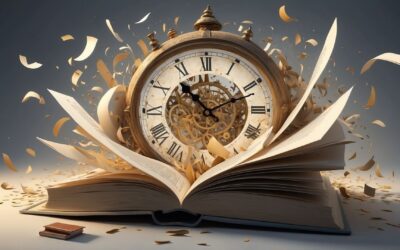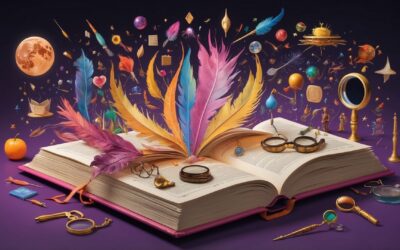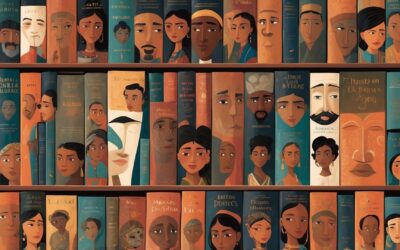In the dimly lit cave of prehistoric times, a small gathering huddled close, the flickering light of a single fire illuminating the tales their shadows danced out on the cavern walls. The story they told wasn’t just for entertainment; it was a method of communication, an expression of their experiences and understanding of the world around them. This was perhaps the first taste of drama, a nascent form of theater, a precursor to an art form that would evolve and shape civilizations.
Act I: The Ancient Beginnings
The origins of drama can be traced back to ancient civilizations. In the heart of Egypt, priests narrated tales of gods, the afterlife, and the cosmos, using the sprawling sand as their stage. However, it was in ancient Greece, under the shadow of the Parthenon, that theater truly began its evolution. Inspired by the Dionysian festivals, honoring the god of wine and festivity, the Greeks combined music, dance, and poetry to create ‘Tragedy’. Pioneers like Aeschylus, Sophocles, and Euripides sculpted the path for dramatic narrative, exploring profound themes of love, betrayal, honor, and hubris.
Not far away, in Rome, theater took a more comedic and farcical turn, reflecting the Roman taste for spectacle and laughter. Plautus and Terence, the comedic craftsmen, brought characters alive that resonated with the masses.
Act II: The Middle Ages and the Renaissance Flourish
The fall of the Roman Empire plunged Europe into the Dark Ages, but theater persisted, evolving in the shadows. Church liturgies in the medieval times began to incorporate small dramatized episodes, slowly giving rise to the popular mystery and morality plays.
As Europe stepped into the light of the Renaissance, Italy embraced Commedia dell’arte, an improvisational theater that relied on stock characters and masks, creating comedic scenarios that were as reflective of society as they were entertaining.
Yet, it was in England, under the reign of Elizabeth I, that drama saw a golden age. The bard of Avon, William Shakespeare, weaved tales of such depth and complexity that they continue to resonate today. His tragedies, comedies, and histories, performed at The Globe, touched on every facet of the human experience.
Act III: The Restoration, Realism, and Revolution
The 17th century brought with it the Restoration – a period characterized by the rebirth of English theater. Comedies of manners, satirizing the upper classes’ decadence, became the rage. Writers like Molière in France delved into society’s hypocrisy with wit and precision.
The 19th century saw the rise of Realism, a departure from high-flown rhetoric and declamatory performance. Henrik Ibsen and Anton Chekhov penned down stories that mirrored reality, emphasizing the intricacies and mundanity of daily life.
With the turn of the 20th century came revolutionary forms of theater. From the surreal plays of Samuel Beckett to the Absurdist dramas, theater became a space to question, challenge, and disrupt conventional narratives.
Act IV: Contemporary Echoes
Today, drama and theater have seeped into every cultural crevice. From Broadway’s dazzling lights to the subtle poignancy of regional theaters, the art form continues to evolve. Digital platforms and cinema provide new mediums for playwrights, blurring the lines between traditional and contemporary.
Issues of race, gender, identity, and politics now find voices on the stage, with writers like Lin-Manuel Miranda and August Wilson, making theater not just a reflection of society, but a commentary on its ever-changing dynamics.
Epilogue: An Ever-evolving Legacy
Theater, from its earliest inception, has been a reflection of society, a mirror held up to its audience, revealing both beauty and blemish. Its roots, deeply embedded in literature, have provided a foundation for stories that transcend time, culture, and medium.
From that dimly lit prehistoric cave to the glaring neon lights of modern-day theaters, drama has been a constant companion of humanity, chronicling its tales of sorrow, joy, love, despair, and hope.
As the curtains close on this exploration, one thing is clear: theater, in all its forms, will continue to tell our stories, echoing our past and envisioning our future. It is, and will always remain, an indelible testament to the human spirit’s power and resilience.
Keywords
- Nascent: In the beginning stages of development.
- Dionysian festivals: Ancient celebrations in Greece honoring Dionysus, the god of wine, fertility, and festivity.
- Hubris: Excessive pride, especially towards or against the gods leading to nemesis in classical Greek tragedies.
- Commedia dell’arte: A form of theater characterized by masked “types” that began in Italy in the 16th century and emphasizes improvisation.
- Declamatory: A style of speaking or writing that’s meant to be heard and understood by a large audience, often exaggerated and theatrical.
- Restoration: Referring to the English Restoration, a period in the late 17th century when the monarchy was restored and saw a resurgence in theater.
- Comedies of manners: A form of comedy that satirizes the behavior of a social class or societal group.
- Absurdist dramas: Plays that portray human existence as meaningless and absurd.
- Lin-Manuel Miranda: An American composer, lyricist, and actor known for creating and performing in the musicals “Hamilton” and “In the Heights”.
- Indelible: Making marks that cannot be removed; in a figurative sense, something that leaves a lasting impact.
Key Takeaways
- Drama originated as a mode of communication, perhaps as shadow tales on the walls of prehistoric caves.
- Ancient Greece is central to the evolution of theater, with tragedies forming the core of its contribution.
- The Roman theater was characterized by comedy and farce.
- Drama survived and evolved through the Dark Ages, with the Church using theater as a medium to relay biblical stories.
- The Renaissance brought a revival of theater, with Shakespearean England being a notable highlight.
- Drama mirrored societal changes, from the Restoration’s satirical plays to the 19th century’s realistic portrayals of daily life.
- The 20th century introduced revolutionary forms of theater, challenging traditional narratives.
- Contemporary theater is diverse and reflective, addressing issues of race, gender, politics, and identity.
- Modern platforms like digital mediums and cinema are redefining the boundaries of traditional theater.
- Theater has consistently been a reflection of society, encapsulating its myriad emotions and stories.
Check out the Story of Literature Article Series
The Story of Literature: Delving into Humanity’s Timeless Narratives (Featured Article)
From Campfire Tales to Digital Screens: The Evolution of Storytelling
Drama through Time: From Ancient Shadows to Modern Stages
The Mesmerizing Power of Novels: A Deep Dive into Our Fascination with Long Narratives
Echoes of Society: The Deep Interplay between Literature and Cultural Values
Navigating the Digital Revolution: How Literature Evolves in a Tech-driven World
Universality in Literature: Uniting Hearts and Minds Across Cultures










0 Comments